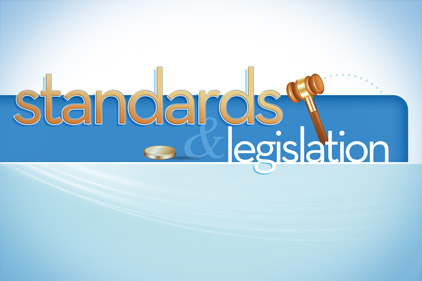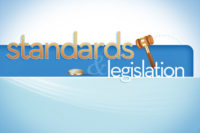Background on the Rules
The rules governing union elections, which are very complex, are administered and enforced by the NLRB. One major change NLRB has proposed is to shorten the time frame elections must be conducted by after a petition for election has been filed. According to NLRB, this change “would remove unnecessary barriers to the fair and expeditious resolution of questions concerning representation.”
NLRB has also proposed a rule that would require employers to provide unions with a voter list of complete contact info for employees. Both of these proposed rulemakings were published in the Federal Register on June 22. The comment period for these rulemakings ended on Aug. 22, and at press time, the NLRB had not issued final rules.
In addition, DOL has proposed rules that would require employers to file more government reports on their activities to persuade employees against unionizing. This notice of proposed rulemaking was published in the Federal Register on June 21, and the period for submitting comments was extended until Sept. 21.
Will Union Election Laws Affect HVAC?
While the industry awaits further updates from the NLRB and DOL regarding the rules, members of the HVAC community are presenting their opinions of the rules.
According to Jon Melchi, manager of government affairs at Heating, Airconditioning & Refrigeration Distributors International (HARDI), “HARDI opposes any regulation or legislation which restricts an open line of communication between employer and employee. We believe that the NLRB’s proposal for quickie elections will limit the ability of the employee to collect all available information and that an issue such as unionization should not be rushed into. HARDI also believes that shortening the election time frame could allow for misconduct in the process.”
Charlie McCrudden, vice president for government relations, Air Conditioning Contractors of America (ACCA), said, “There’s no need to quicken or shorten the time before elections.”
He noted that ACCA is a member of the Coalition for a Democratic Workplace (CDW), which filed comments on the proposed election rules on behalf of all its member organizations. “The comments filed expressed our viewpoint on the quickie election rules,” he said. According to CDW, “The NLRB’s own statistics reveal that in 2010, the average election time frame was 31 days, with over 95 percent of elections occurring within 56 days.” CDW also reported that 2010 was the 14th year in a row that unions have won more than one-half of all NLRB elections.
“In most cases, elections are going towards the union, and in a relatively expeditious manner,” McCrudden continued. He added that shortening the allowed time frame for an election will limit employers’ ability to discuss the election with their employees, and that could further tip the balance in favor of unions.
On the other hand, John McNerney, general counsel for the Mechanical Contractors Association of America (MCAA), said, “The recent NLRB rules proposals and action on union election procedures unfortunately have attracted much more partisan heat than they probably warrant.” He continued, “On their face, they are mainstream pragmatic proposals in line with the policy underlying the National Labor Relations Act. But, as with all things in public policy today, the non-union partisan rhetoric is perhaps too strong if not altogether overdrawn.”
Furthermore, McNerney said that rules were unlikely to impact companies in the construction industry. “From an MCAA member perspective, the proposed rules on bargaining unit determinations and the list of eligible voter list disclosure in union organizing campaigns are of very little importance, as MCAA member companies voluntarily sign collective bargaining agreements under special labor law rules pertaining to prehire agreements in the construction industry,” he explained, adding, “In fact, they are organized by voluntary choice, not NLRB-administered organizing election.”
Will Rules Harm Business?
Yet the outcry against the rules is not limited to protesting the shortened election time frame. Many are concerned about the NLRB rule that will require employers to provide union organizers with contact information for all employees eligible to join a union. In addition, the DOL rule to expand the reporting requirements for employer-consultant persuader agreements has also raised concern about employers’ rights.
Melchi said that HARDI believes employee contact information should be confidential. “This could lead to circumstances where an employee is harassed at their home if they opt against organizing, along with other safety risks that could come from disclosing this protected information,” he said.
Moreover, he continued, HARDI believes that the DOL’s proposed rule “infringes on an employer’s right to seek advice from outside their organization.”
McCrudden also offered his perspective on this rule, stating, “If this persuader rule were to go through, our communications with members regarding union activity could possibly be recordable.” For example, he explained that ACCA members often call him asking for guidance on union issues such as salting (the practice of union organizers applying for jobs at nonunion companies and, once hired, immediately announcing their intent to organize the workforce). In such a situation, McCrudden said, “We provide basic information, but none of it is reportable under the current rules.” If the DOL’s changes to the persuader rules are finalized, McCrudden said, “Quite possibly I’d have to be very careful to what I said or didn’t say to a member facing a union election. The reporting would be a burden for us, a burden for them, and would have a chilling effect on companies facing union elections.”
Looking at the rules from a macro perspective, Melchi said, “All businesses will have to take time to understand and implement their new policies, which will come at a cost, at a time when the economy is struggling and business owners are already dealing with compliance on an unprecedented scale.”
He added that business owners may have to bring in an in-house counsel to protect themselves and better understand the new rules. “Ultimately, rules like these lead to less communication between employer and employee, and that is to nobody’s benefit,” Melchi said.
Yet MCAA’s McNerney cautioned that the debate about the potential effect of the rules has become highly politicized.
“It may be worth looking into the actual prevalence of organizing elections in construction industry bargaining units as a percentage of the entire workforce in the industry to judge the actual impact on the industry relative to the quality of the rhetoric in opposition,” he said.
Overall, McCrudden said, “In general, the status quo is working. The concern about these rules is that they’re essentially changing the status quo and tipping it in the favor of the unions unnecessarily.”
Publication date: 09/19/2011










